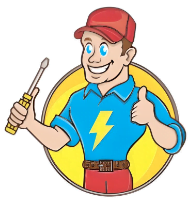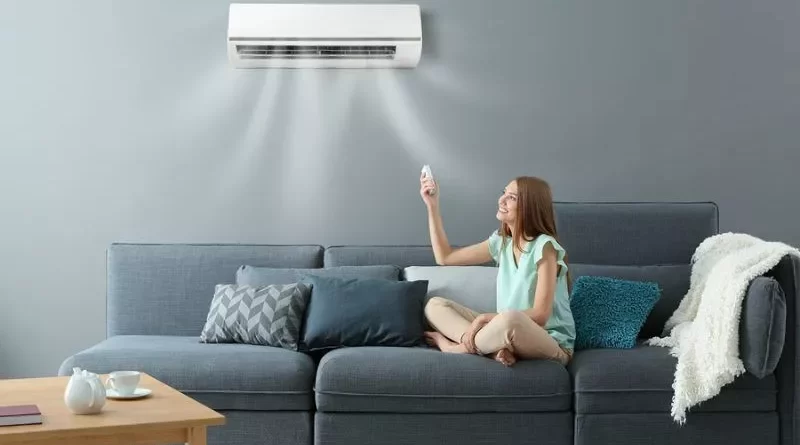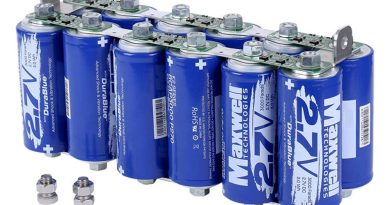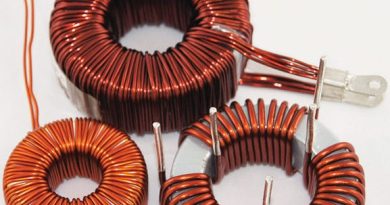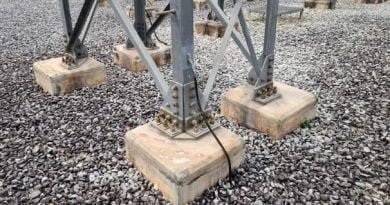How to Choose the Right Air Conditioning System for Your Home or Business
How to Choose the Right Air Conditioning System for Your Home or Business
Table of Contents
Introduction
Types of Air Conditioning Systems
- Window Air Conditioners
- Split Air Conditioners
- Central Air Conditioners
- Portable Air Conditioners
- Ductless Mini-Split Systems
Key Factors to Consider
- Cooling Capacity
- Energy Efficiency
- Operating Costs
- Noise Levels
- Installation and Maintenance
- Size and Design
- Special Features
Choosing AC Systems for Different Rooms and Spaces
- Bedrooms
- Living Rooms
- Kitchens
- Home Offices
- Commercial Offices and Retail Spaces
- Server Rooms and Data Centers
- Restaurants and Hospitality Businesses
Installation and Maintenance Considerations
- Hiring a Contractor
- Permits and Inspections
- Proper Sizing and Placement
- Air Filtration and Ventilation
- Regular Maintenance
- Repairs and Troubleshooting
Operating Your AC Efficiently
- Using a Programmable Thermostat
- Adjusting Fan Settings
- Closing Windows and Doors
- Changing Filters
- Strategic Shade Usage
- Scheduling Regular Tune-Ups
Signs You Need a New AC System
- Frequent Repairs and Breakdowns
- Rooms Not Cooling Evenly or Properly
- Spikes in Utility Bills
- Noisy Operation
- Mold, Mildew, or Musty Smells
Conclusion
How to Choose the Right Air Conditioning System for Your Home or Business
Introduction
Staying cool indoors during the warm summer months is essential for comfort and productivity at home and in the workplace. Air conditioning systems provide the cool, filtered air we rely on during hot weather. With many types of AC systems on the market, choosing the right one for your space requires careful consideration of room size, usage, efficiency, noise, costs, and more. Selecting an improperly sized or designed AC system can result in inadequate cooling, high utility bills, frequent repairs, and other issues. This comprehensive guide provides tips for choosing the ideal air conditioning system for residential and commercial spaces.
Types of Air Conditioning Systems
Several types of air conditioning systems are available on the market today. The right option depends on the size and layout of your space.
Window Air Conditioners
Window or room AC units are designed to cool a single room by mounting into a window or wall opening. An integrated chassis contains the components like a compressor, condenser, evaporator, and fans. Window units are best for smaller areas like bedrooms, home offices, and server rooms.
Split Air Conditioners
Split AC systems have an outdoor condenser/compressor and a separate indoor evaporator unit connected by refrigerant lines. The indoor unit is mounted on a wall or ceiling. Split systems are ideal for multi-room applications. Multi-split systems have one outdoor unit linked to multiple indoor units.
Central Air Conditioners
Central air conditioners consist of an outdoor condenser linked by ductwork to an indoor evaporator coil. The evaporator connects to a home’s or building’s ductwork to distribute cooled air. Central air is suited for whole-home or whole-building cooling applications.
Portable Air Conditioners
Portable ACs have a compact chassis with built-in casters for mobility. An exhaust hose ventilates hot air outside. Portable units are convenient for spot cooling specific areas.
Ductless Mini-Split Systems
Mini-split systems have an outdoor compressor that links to one or multiple indoor wall-mounted evaporators, allowing targeted cooling of select rooms or zones.
Key Factors to Consider
Several key factors should guide your AC selection process:
Cooling Capacity
Consider the size of the space and cooling load when selecting AC capacity. Oversized units waste energy, while undersized units won’t sufficiently cool. AC pros can calculate ideal capacity.
Energy Efficiency
Look at SEER and EER ratings to compare efficiencies. Higher ratings save more on electric bills but have higher upfront costs. Find a suitable balance for your situation.
Operating Costs
Estimate the annual operating costs based on AC size, efficiency, local electricity rates, and usage patterns. More efficient ACs have higher initial costs but lower operating costs long-term.
Noise Levels
Consider potential noise from the condenser and evaporator fans and airflow. Sound ratings help compare noise levels. Strategic placement can also reduce noise.
Installation and Maintenance
Factor in installation costs like labor, materials, permits, etc. Larger units typically require professional installation. Also, consider long-term maintenance costs.
Size and Design
Choose a size and chassis configuration suitable for your window, wall, ceiling, or outdoor space. Measure carefully to ensure a proper fit.
Special Features
Consider features like programmable thermostats, variable speed fans, dehumidification modes, WiFi controls, air purification, etc.
Choosing AC Systems for Different Rooms and Spaces
Carefully match the AC system to the room or space being cooled.
Bedrooms
Opt for quieter windows, portable, mini-split, or ductless split AC units for bedrooms. Focus on noise levels and consider smart thermostats.
Living Rooms
Larger split ductless, or central AC systems work well for living rooms. Look for thermostats with scheduling for intermittent use.
Kitchens
Avoid putting window units above stoves. Portable or compact mini-split units are good options for kitchens.
Home Offices
Window, portable, or mini-split ACs suit home offices. Central AC works for larger or multi-room offices.
Commercial Offices and Retail Spaces
Commercial spaces require larger split systems or central AC systems. Zone control helps optimize usage.
Server Rooms and Data Centers
Precision cooling is crucial for IT equipment. Dedicated split systems offer redundancy and backup capabilities.
Restaurants and Hospitality Businesses
Zoned central AC with dehumidification effectively cools dining areas, kitchens, and guest rooms.
Installation and Maintenance Considerations
Proper installation and maintenance ensure optimal AC performance and lifespan.
Hiring a Contractor
Seek an experienced HVAC contractor for complex installations. Get multiple bids for the project.
Permits and Inspections
Most areas require permits and inspections for permanent AC installations. The contractor will handle this.
Proper Sizing and Placement
The contractor will size the AC correctly and identify the optimal positioning for the condenser and evaporator units.
Air Filtration and Ventilation
Proper ventilation, air filtration, and sealing of ductwork improve air quality and reduce strain on the AC.
Regular Maintenance
Schedule annual professional maintenance to clean, inspect, and service the AC system. Replace filters regularly.
Repairs and Troubleshooting
Contact an HVAC technician promptly for any repairs to refrigerant lines, motor or fans, coils and compressors, etc.
Operating Your AC Efficiently
Following best practices maximizes efficiency and reduces utility costs:
Using a Programmable Thermostat
Use smart or programmable thermostats to adjust temperatures according to room occupancy and usage patterns.
Adjusting Fan Settings
Use auto fan modes and adjust speeds based on need. Higher fan speeds use more energy.
Closing Windows and Doors
Keep windows and doors shut when operating the AC to avoid wasting cooled air and overworking the AC.
Changing Filters
Replace clogged filters which block airflow and reduce AC efficiency. Check filters monthly.
Strategic Shade Usage
Use curtains, shades, and blinds to block direct sun exposure, which heats indoor spaces and increases the cooling load.
Scheduling Regular Tune-Ups
Annual professional tune-ups improve efficiency and can extend your AC system’s lifespan.
Signs You Need a New AC System
Consider replacing old, inefficient air conditioners if you notice these warning signs:
Frequent Repairs and Breakdowns
ACs requiring frequent repairs may be obsolete. Newer models offer improved reliability.
Rooms Not Cooling Evenly or Properly
Insufficient cooling, hot/cold spots, and humidity indicate inadequate HVAC performance.
Spikes in Utility Bills
If energy bills are suddenly higher, your AC may be operating inefficiently due to age or damage.
Noisy Operation
Excessive noise from fans, compressors, and airflow indicates potential problems.
Mold, Mildew, or Musty Smells
These odors indicate improper dehumidification and possible AC system issues.
Conclusion
Selecting the ideal air conditioning system involves evaluating the size and usage of the space, efficiency, upfront and operating costs, placement requirements, special features, and more. Proper installation and regular maintenance are also essential. Matching the AC system design to your cooling needs ensures comfort, cost-effectiveness, and reliability for years. With some research and advice from HVAC professionals, you can choose the proper AC for your home or business.
Frequently Asked Questions about Air Conditioning Systems
What size air conditioner do I need for my space?
An HVAC professional should calculate the ideal cooling capacity you need based on room size, layout, local climate, usage, and other factors. Oversized and undersized ACs cause problems.
How often should I replace my AC air filter?
Air filters should be checked monthly and replaced at least every three months. Dirty filters reduce airflow and AC efficiency. Some filters are washable, while others need replacement.
Should I get regular maintenance done on my AC?
Yes, annual professional tune-ups improve efficiency, extend the lifespan, and prevent costly repairs. Maintenance includes cleaning, inspection, filter changes, etc.
What are the signs my AC system needs to be replaced?
Frequent breakdowns, inadequate cooling, noisy operation, spikes in energy bills, mold/mildew smell, and 12+ years of age indicate an old AC that needs replacement.
Should I repair or replace my old air conditioner?
Consider your existing AC’s repair costs, age, efficiency, and reliability. In many cases, repairing an old AC is not cost-effective compared to upgrading to a newer, more efficient model.
